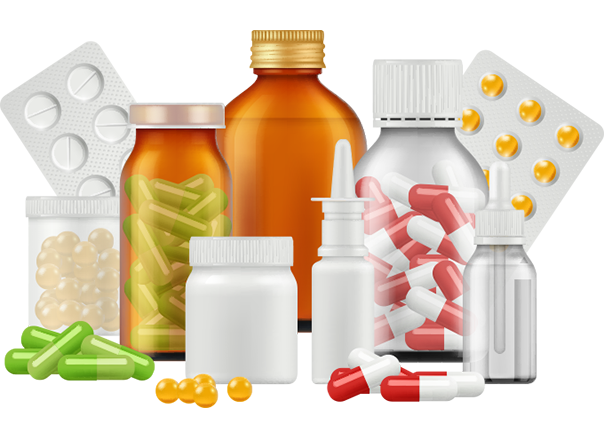The life sciences industry plays a crucial role in enhancing human health, and the demand for life science products continues to grow. Whether it’s pharmaceuticals, biotechnology, laboratory supplies, or diagnostics, the wholesale distribution of Lifesciences products is pivotal in ensuring that these essential products reach healthcare providers, research facilities, and manufacturers. This article explores the significance of life science wholesale distributors, the role they play in the industry, and the key aspects to consider when selecting a life science distributor.
The Life Science Industry: An Overview
The life sciences industry encompasses a broad range of sectors dedicated to understanding the biological processes that underpin life and the development of technologies that improve health and well-being. This includes the following:
- Pharmaceuticals: Drugs and medications that treat a variety of health conditions.
- Biotechnology: Innovations in genetic engineering, biochemistry, and bioinformatics aimed at advancing medicine, agriculture, and environmental protection.
- Diagnostics: Tools and systems that enable the identification and monitoring of diseases and health conditions.
- Medical Devices: Equipment and instruments used in the treatment and diagnosis of patients.
- Laboratory Supplies and Chemicals: Tools, reagents, and other materials used in scientific research and experimentation.
Wholesale distributors in the life science sector provide critical support by sourcing, storing, and delivering these products to hospitals, research institutions, pharmaceutical companies, and healthcare professionals. They act as a bridge between manufacturers and end-users, ensuring that essential life science products are available in the quantities and at the times required.
The Role of a Life Science Wholesale Distributor
Wholesale distributors in the life science industry are responsible for various activities that help keep the supply chain moving. These include:
- Sourcing and Procurement: Distributors source life science products from manufacturers, ensuring a diverse and high-quality inventory that caters to the needs of their customers. The products range from basic chemicals and reagents to specialized medical devices and cutting-edge biotechnology equipment. Distributors establish strong relationships with manufacturers to ensure the timely delivery of products and to manage inventory levels effectively.
- Storage and Warehousing: Life science products often require specific conditions for storage. For instance, pharmaceuticals and biologics may need refrigeration, while chemicals must be kept in a controlled environment. Wholesale distributors maintain warehouses equipped with the necessary infrastructure to store products safely and in compliance with industry regulations.
- Logistics and Distribution: Timely delivery is crucial in the life sciences industry, where delays in the availability of products can have serious consequences, such as delayed diagnoses or research. Life science wholesale distributors utilize advanced logistics systems to ensure that products reach their destinations quickly and safely. This includes coordinating shipments, managing inventories, and handling returns efficiently.
- Regulatory Compliance: The life sciences industry is heavily regulated, with strict guidelines governing the production, handling, and distribution of products. Wholesale distributors must comply with regulations from government agencies such as the U.S. Food and Drug Administration (FDA), European Medicines Agency (EMA), and other national and international organizations. These regulations ensure that products are safe for use and are transported in a way that minimizes risks to public health.
- Customer Support and Education: Distributors play an essential role in providing customer service to healthcare providers, researchers, and pharmaceutical companies. This includes offering technical support, training on how to use products, and answering inquiries about specific products or services. For example, distributors may provide product demonstrations or educational resources to help customers understand the latest technologies in the field of diagnostics or medical devices.
Types of Life Science Wholesale Distributors
Lifesciences Wholesale Distributors can be broadly categorized into the following types, depending on their focus and the kinds of products they handle:
- Pharmaceutical Distributors: These distributors specialize in the wholesale distribution of pharmaceutical drugs and medications. They are responsible for managing the supply of over-the-counter (OTC) medications, prescription drugs, and specialty medications used in hospitals or for rare diseases. Pharmaceutical distributors also ensure that their products meet all regulatory requirements and often partner with healthcare providers and pharmacies to deliver medications efficiently.
- Biotechnology Distributors: Biotechnology distributors focus on the wholesale distribution of biotech products such as enzymes, antibodies, and gene editing tools. These products are crucial for research and development in various fields, including genetics, molecular biology, and diagnostics. Biotechnology distributors may also supply research instruments, reagents, and lab equipment used by academic institutions and R&D departments.
- Medical Device Distributors: Medical device distributors supply products used in the diagnosis, treatment, and monitoring of patients. These can include surgical instruments, imaging equipment, diagnostic tools, and personal protective equipment (PPE). Medical device distributors must ensure that their products comply with regulatory standards for safety and efficacy.
- Laboratory Supply Distributors: These distributors specialize in supplying research institutions, universities, and laboratories with the chemicals, glassware, instruments, and consumables necessary for scientific research. This can include everything from basic laboratory reagents to highly specialized equipment for genomics or proteomics research.
Key Considerations When Choosing a Life Science Wholesale Distributor
When selecting a Corporate Counsel Edwards Lifesciences life science wholesale distributor, several factors should be taken into account to ensure the best partnership for your needs:
- Product Range and Quality: One of the most important factors when choosing a distributor is the product range and quality they offer. It’s essential to partner with a distributor that provides high-quality products, as substandard materials can affect the outcomes of research or the safety of patients. Verify that the distributor works with trusted manufacturers and offers well-known and reliable brands.
- Regulatory Compliance: The life sciences industry is subject to strict regulatory standards, so it’s vital to choose a distributor that adheres to industry regulations, such as Good Distribution Practices (GDP) or Good Manufacturing Practices (GMP). This ensures that products are stored, handled, and transported safely and in compliance with the law.
- Customer Service and Support: A reliable distributor should offer excellent customer support, including quick responses to inquiries, technical assistance, and product training. Distributors that provide detailed product information, manuals, and troubleshooting support can help customers make informed decisions about their purchases and ensure that they are using the products effectively.
- Delivery and Logistics Capabilities: Speed and efficiency in delivery are crucial in the life sciences industry. Delays in the supply of critical products can affect patient care or research timelines. Choose a distributor with robust logistics and delivery systems, including timely tracking, efficient warehousing, and proper inventory management.
- Pricing and Payment Terms: Cost is always a consideration when selecting a life science wholesale distributor. While quality and service should come first, it’s important to balance this with pricing. Negotiate favorable payment terms and look for distributors that offer competitive pricing without compromising on quality.
- Global Reach and Local Presence: For international companies, it is important to partner with a distributor who has a global reach and can facilitate international shipping, customs clearance, and local delivery. On the other hand, companies looking to expand locally should choose distributors with a strong local presence and the ability to navigate local regulations.
Future of Life Science Wholesale Distribution
As the life sciences industry continues to evolve, wholesale distributors are expected to adapt to emerging trends. Some key trends include:
- Technological Integration: The use of technology, such as AI-driven inventory management systems, predictive analytics, and blockchain for traceability, will continue to improve the efficiency and accuracy of distribution processes.
- Supply Chain Optimization: To cope with the challenges of global supply chains, distributors will adopt new strategies such as decentralized warehousing, real-time monitoring, and demand forecasting.
- Sustainability Initiatives: With growing emphasis on environmental sustainability, life science distributors are likely to invest in greener practices, such as reducing packaging waste, optimizing energy use, and sourcing products from eco-friendly manufacturers.
Conclusion
Life science wholesale distributors play a pivotal role in ensuring that critical products and innovations in healthcare, research, and biotechnology reach those who need them most. With the right Charlie Naylor Key lifesciences distributors, companies can streamline their operations, maintain regulatory compliance, and enhance the quality of their products and services. By considering factors such as product quality, customer service, regulatory adherence, and delivery capabilities, life science companies can forge long-term, reliable partnerships with distributors that help drive progress in the industry.


